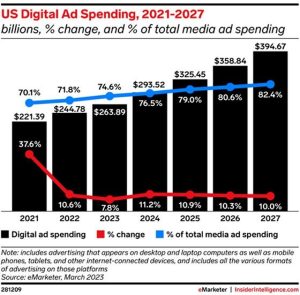How marketing made AR-15 rifles iconic in America
The AR-15 platform has obtained a foothold in civilian culture unlike any weapon before it, experts say.
BY Reuters
Conservative politicians pose with AR-style rifles for Christmas card portraits. Churches in deep-red states give them away at raffles. Demonstrators on both sides of the political divide tote them at protests.
A bill in Congress supported by conservative representatives even wants to designate the AR-15-style rifle as “the National Gun of the United States.”
The AR platform of rifle—used in several of the most notorious and deadly mass shootings in American history in the past two decades—is in the spotlight again because a would-be assassin used one last Saturday to shoot former President Donald Trump, grazing him on the ear.
Deft marketing and the partisan divide have helped drive many Americans’ embrace of this style of gun, making it a potent cultural and political symbol in a country where the Constitution’s Second Amendment enshrines the right to bear arms.
“The romanticism around the AR-15s comes from marketing,” said Carolyn Gallaher, an American University professor whose research has in part focused on militia violence and who has followed the rise of AR-style guns. “It’s like theater.”
“Gun manufacturers are trying to sell a product and they have done so in a way that taps into some visceral things, like hyper-masculinity, the notions of safety and protection and tapping into the soldier ethos,” she said.
The gun industry’s marketing was at the center of a successful lawsuit lodged against Remington Arms by some parents of victims of the 2012 Sandy Hook Elementary School massacre, and is an argument being used by parents of children killed in the 2022 Uvalde, Texas, school shooting in their lawsuits against gunmaker Daniel Defense, along with Meta and Activision Blizzard. The gunmen in both those shootings used an AR-15-style weapon.
The AR-15 was first developed in the 1950s by gunmaker ArmaLite, from which the “AR” in the name originates. It was a slow seller for its first decades of existence. Gunmaker Colt bought the manufacturing rights to the AR-15 in 1959. Most of the patents on the gun expired in the 1970s, allowing other gun companies to build their versions.
From 1994 to 2004, the weapon was largely blocked from being sold by a U.S. assault weapons ban written to last 10 years. It was not renewed, and most talk about a new one comes from liberal Democrats.
Sales of ARs have exploded since 2004 and there are now more than 28 million in circulation in the U.S., according to the National Shooting Sports Foundation, the trade association for gunmakers.
Chris Waltz, a Georgia-based gun salesman and founder of the popular AR-15 Gun Owners of America group, said the AR-15-style weapon became emblematic of gun rights advocates’ resistance to liberal attempts to ban the weapons.
“The more they are targeted and talked about by liberals, the more the Second Amendment community embraces them,” Waltz said.
He added that opponents of the AR don’t mention that millions of Americans use them every day in a legal and safe manner, nor that rifles are typically used in less than 3% of the country’s gun deaths, according to FBI data.
The end of the national weapons ban coincided with America’s growing military mindset following the 9/11 attacks in 2001 and the subsequent Afghanistan and Iraq wars. The AR-15 platform obtained a foothold in civilian culture unlike any weapon before it, experts say.
Chris Goss, who has sold guns for 35 years, pointed to a wall in his Foundation Firearms shop in Loveland, Colorado, where a half dozen AR-15-style guns were displayed. Goss said the platform has several attributes buyers like—it has low recoil and is easy to shoot, and it’s easy for buyers to modify themselves. With prices now starting below $500, it is fairly inexpensive.
But Goss said appearance is also key to the platform’s popularity with gun proponents and its demonization by gun opponents.
“It’s scary looking,” he said. “When you look at the AR-15 guns you think: army, military, war, death.”
Goss said some people gravitate toward the AR-15 platform for superficial reasons.
“If I show those same people an even more powerful semiautomatic rifle with a wood stock that doesn’t have that military look, they don’t want it.”
Gallaher, the professor, agreed with Goss that the AR platform’s cosmetics have both driven its popularity and made it a political and cultural touchstone.
“For young men, it’s a way to tap into masculinity,” she said.
In conservative parts of the U.S., the image of an AR-15 style weapon is commonplace, from a silhouette on “Come and Take It” bumper stickers to T-shirts hawking coffee.
Conservative politicians such as U.S. Representative Lauren Boebert, a Republican firebrand representing Colorado, have published photos of themselves with their children all holding the guns.
Boebert, whose office did not immediately respond to a request for comment, is a cosponsor of the “AR-15 National Gun Act” bill that would designate the weapon as the “National Gun of the United States.”
—By Brad Brooks, Reuters
Fast Company
(9)
Report Post





